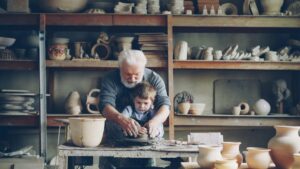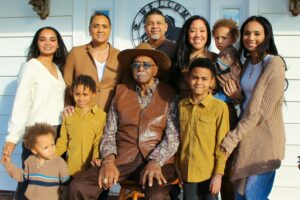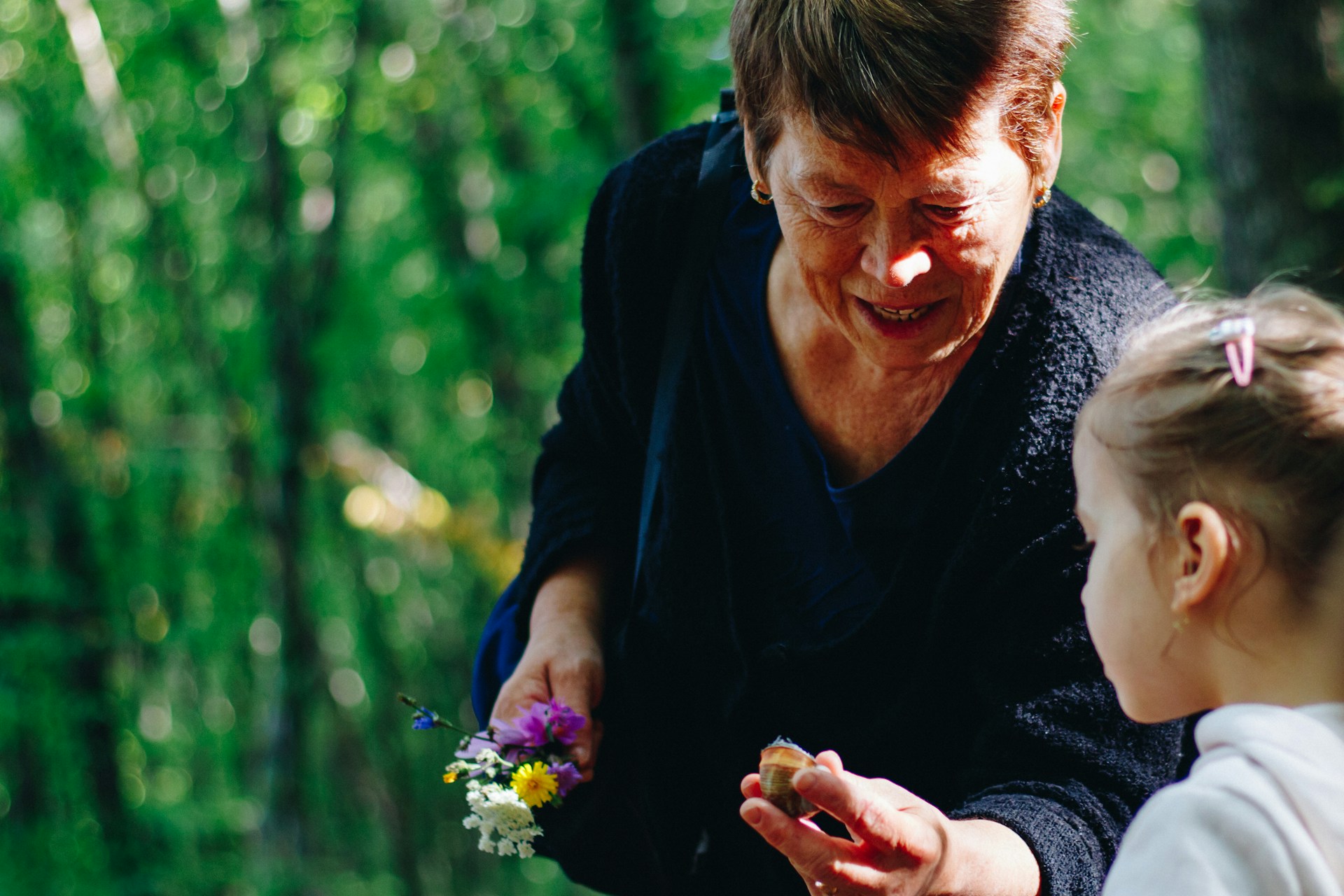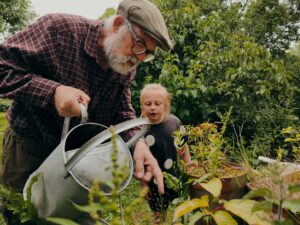- Happy Activism: A Sustainable Way to Create Change Without Burnout - February 9, 2026
- The Meaning of Critical Thinking: A Key Skill for Navigating Today’s Information Landscape - November 3, 2025
- Grandparents Can Develop Activist Grandchildren - September 29, 2025
Last Updated on February 13, 2026
Grandparents have a huge impact on their grandchildren. Help them develop compassion and skills to make the world a better place.
Spoiler alert: I don’t have any grandchildren. But what inspired me to research and write this post was that so many older adults are making a difference for others through activism and volunteering. These people have a great passion for their cause, and it would be wonderful if they could pass that passion for justice to their grandchildren.
 Grandparents as Teachers
Grandparents as Teachers
Grandparents play a role in their grandchildren’s lives. In research on family influences, young people usually describe parents as having the most influence, but grandparents are also essential resources.
Share Your Wisdom
Grandparents can make a difference for their grandchildren by passing along what they have learned. Your wisdom is a gift. You can talk about ways you learned about the world and how to improve it. Ways that you may have made mistakes and learned from them. How you experienced significant events in world history, and what you learned.
Introduce Them to New Ideas
Read together. Picture books do more than entertain; they introduce ideas of fairness, kindness, and justice. A Is for Activist is a beautifully simple ABC board book introducing children to activism. Discuss what they notice in the text or picture. Books are an excellent way to explore values together.
Enhance Their Skills and Knowledge
Help your grandchildren take age-appropriate actions, such as writing a letter or donating to a cause, so they believe their actions matter. Invite them to choose something small but concrete, such as a neighborhood cleanup. They are more likely to become empowered young people when they believe their actions matter.
Help them connect with quality youth programs that help develop their skills.
 Grandparents as Mentors
Grandparents as Mentors
Mentoring differs from teaching because it is a partnership, where you learn where your grandchild wishes to go and support them in their journey. While mentoring might include occasional teaching, it is more likely to look like answering questions, providing resources, and making sure they stay motivated and engaged.
Major studies of mentoring programs and the relationships they provide have found that quality mentoring experiences…produce positive impacts on almost every aspect of a young person’s life – education, mental health and wellbeing, development of a healthy identity and sense of belonging, positive engagement in the community, and successful transition into higher education and career paths. ~ Mentoring.org
Listen and Answer their Questions
Research shows that inviting kids to talk about issues and listening without judgment to what they express empowers them. Be a resource for them when they ask for help. Answer their questions, or help them to find the answers.
Model Your Activism
When kids see you volunteering, talking with neighbors, or learning about social causes over coffee, it plants seeds of compassion. Just as parents’ civic behavior influences children’s engagement, grandparents help shape values through what they do, not just what they say. Show them why you care.
Make sure your grandchildren know about your activism and, more importantly, see you in action. Invite them along when you attend community meetings or run a workshop. Afterward, discuss why you do it.
Talk about what is happening in your community, country, and the world. Ask them what they think. Research shows family discussions predict civic participation.
Because of your knowledge and experiences, it may be tempting to tell them what to do. Instead, encourage them to follow their passion.
When Families Have Differing Beliefs

Suppose your grandchildren’s parents have different beliefs. In that case, you can focus on values like kindness and fairness, rather than engaging in political or religious issues.
Ideally, parents will be the main role models for their children in developing values such as kindness and concern for the world. Here is a recap of my post Teach Your Child to be an Activist.
How to Raise a Young Activist
If you want your child to grow into someone who cares deeply and acts boldly, you can guide them with five steps:
- Start with Passion. Help them figure out what matters to them. Let them see your values in action, and invite them to join if they’d like. But let their interests lead. Activism is personal.
- Teach Them to Think Critically. Give them the language and tools to understand injustice by explaining terms like privilege, bias, and intersectionality. Be open to their questions, and learn alongside them when needed.
- Match Action to Personality. Activism isn’t one-size-fits-all. Some kids write, some create, some speak out. Help them find a method that energizes them. Share stories of young changemakers to show what’s possible.
- Focus on Impact. Teach them to evaluate what works. If something doesn’t, pivot. Encourage them to try different approaches and look for programs that give them real responsibility.
- Sustain Their Motivation. Activism can be heavy. Help them set boundaries, practice self-care, and stay grounded. Let them say no. The goal is long-term compassion, not burnout.
Why Grandparents Matter
Research shows that when young people are given real opportunities to practice activism with adult support, they’re more likely to stay engaged, develop civic skills, and feel hopeful about change. Your love, wisdom, and presence in your grandchildren’s lives can impact how they make a difference in the world.
READ NEXT

Browse posts to help you find your purpose.
How To Use The Activism Path To Change The World

 Grandparents as Mentors
Grandparents as Mentors


My 4-year-old grandson (and my daughter) go with me every week to deliver meals at a public housing complex for the disabled. I love that he’s learning to make friends with all kinds of people at such a young age. He is the highlight of their week when he shows up. Great post.
That is wonderful, Lisa! Thanks for sharing.
Best wishes,
Terri Lyon